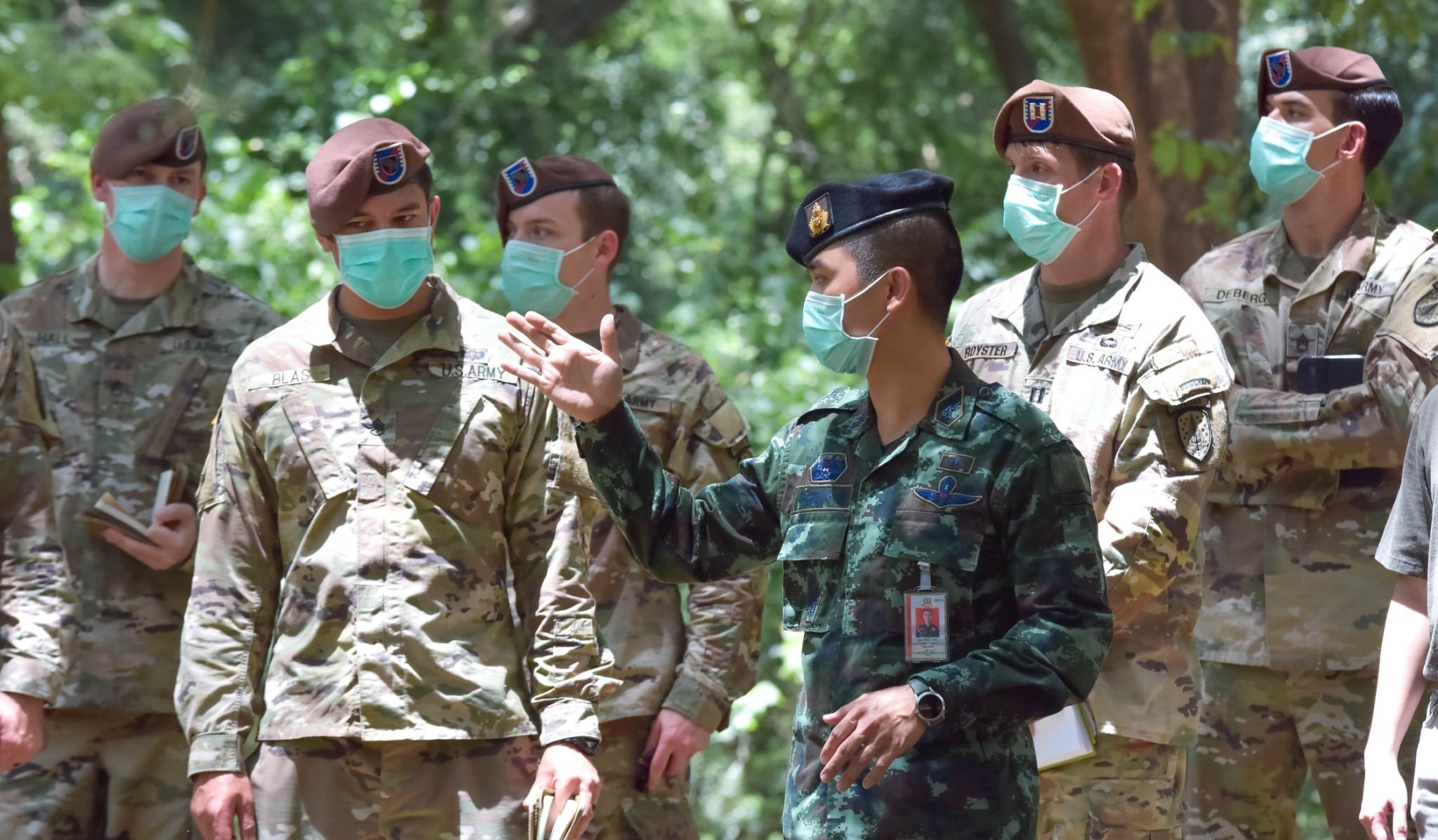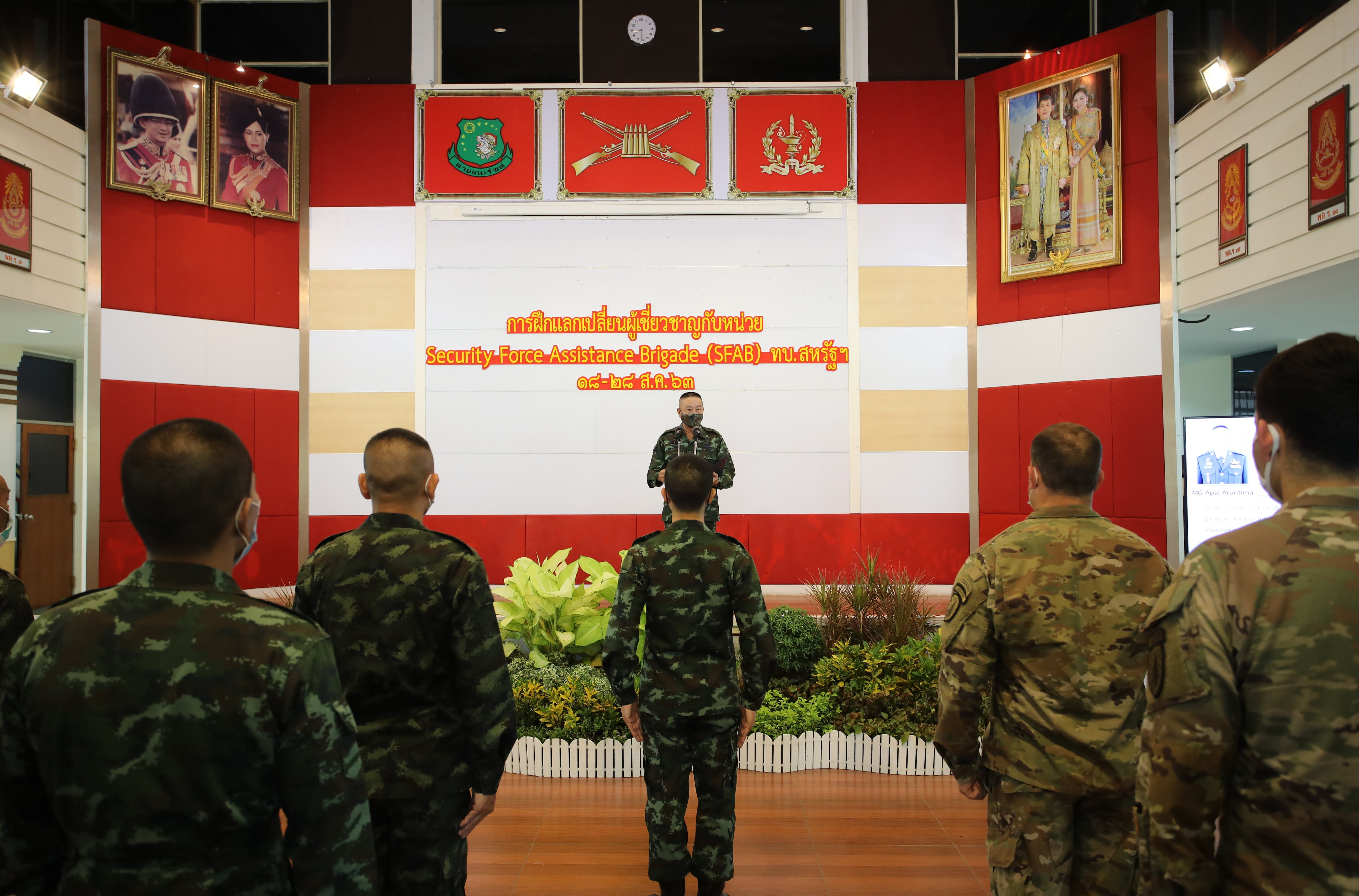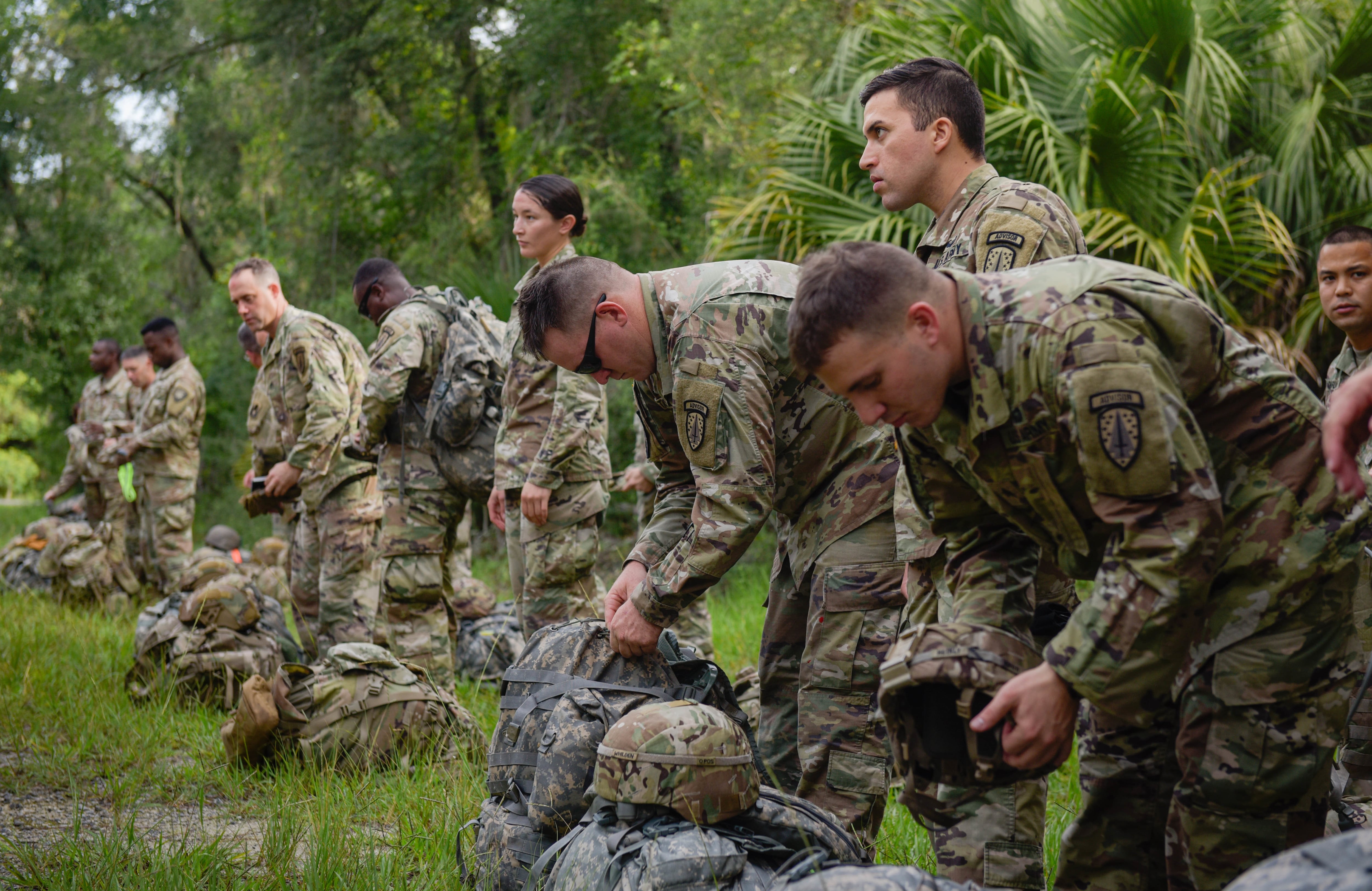About 60 soldiers from the 5th Security Force Assistance Brigade spent a month in Thailand — the unit’s first overseas mission since it was activated in May.
The 5th SFAB worked alongside the Royal Thai Army and learned about their military training academies during August, returning to the United States Sept. 1, brigade officials said. The unit is one of six intended to train foreign militaries across the globe, with the 5th SFAB aligned to U.S. Indo-Pacific Command’s area of responsibility.
The 30-day trip to Thailand was an initial visit meant to establish relations and set the stage for future advising missions, according to Maj. William Leasure, brigade spokesman. The mission followed a visit last year in which Royal Thai Army personnel were hosted by 5th SFAB soldiers at their home station, Joint Base Lewis-McChord in Washington.
“Primarily, this training focused on 5th SFAB learning first hand from the Royal Thai Army about the capacity and capabilities of their military training academies," Leasure said in an email. “It also set conditions for future engagements and training exercises with forces from U.S. Army Pacific."

Unlike the other SFABs that have activated since 2018, the 5th SFAB is not deploying to Afghanistan as its first mission abroad. The unit isn’t slated to go to the Middle East and will instead focus on its regional alignment to the Indo-Pacific, Leasure said.
The 5th SFAB previously announced it will begin a series of six-month deployments to Asia following a certification event in November. That appears to be roughly on track.
Leasure said his brigade plans to deploy adviser teams early next year and continue with “persistent engagements" throughout the region “for the foreseeable future.”
The global coronavirus pandemic factored into the recent mission abroad and will probably play a role in future ones, too. Advisers from the 5th SFAB were placed in self-isolation twice, first at Joint Base Lewis-McChord and then again in Bangkok.
The Americans were tested for COVID-19 by Thai authorities on day 1, 7 and 14 of their quarantine, with all Americans testing negative, according to the brigade.
The 5th SFAB comprises about 820 soldiers who can be deployed in up to 61 adviser teams across the Indo-Pacific to train and assist conventional foreign forces from the battalion to corps levels.

The Army’s SFAB enterprise has already been advising foreign troops on everything from coordinating air support to sustaining logistics on patrol. Until recently, most of those efforts were focused on Afghanistan and involved sending most of the soldiers from each brigade forward.
Now, the SFABs are beginning to align to different regions of the world and deploy in smaller units with specific training capabilities.
RELATED

“Just as likely in the future, we will have small countries in the Pacific, small countries in Africa, small countries in South America and Central America where we may only have one team,” Brig. Gen. Scott Jackson, who leads the division-level Security Force Assistance Command, told Army Times this summer. “It could be four people; it could be 12 people, depending on the effect we’re trying to achieve.”
An early look at how future missions will be conducted can be seen in the company-sized element from 1st SFAB, out of Fort Benning, Georgia, which was sent to Colombia in support of an “enhanced counter-narcotics mission” announced by President Donald Trump April 1.
“What we’re looking at, really, is operational and intelligence processes within our partner forces,” Jackson said of the Colombia assignment. “We are not accompanying host nation forces. That is not our job. We are there to look internally at those formations and make their processes better.”
Kyle Rempfer was an editor and reporter who has covered combat operations, criminal cases, foreign military assistance and training accidents. Before entering journalism, Kyle served in U.S. Air Force Special Tactics and deployed in 2014 to Paktika Province, Afghanistan, and Baghdad, Iraq.
